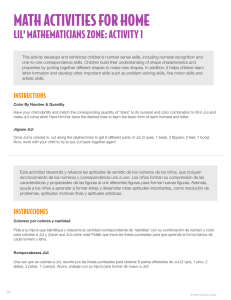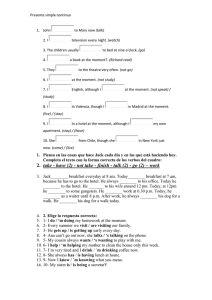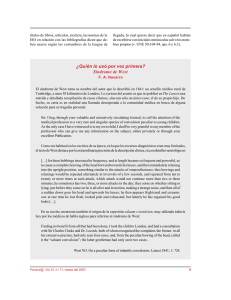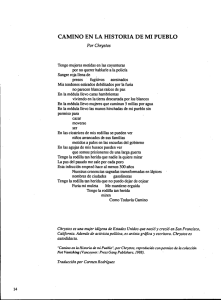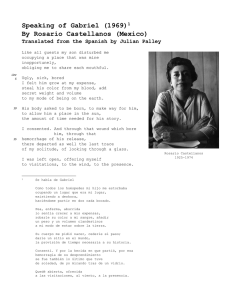MATH ACTIVITIES FOR HOME
Anuncio
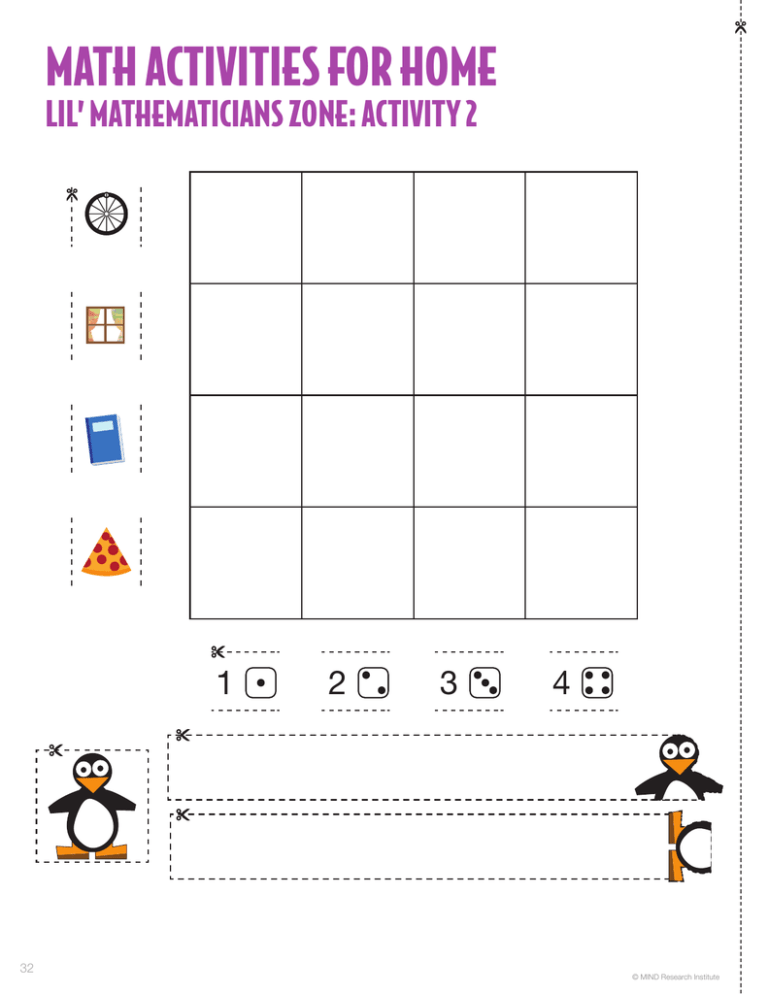
MATH ACTIVITIES FOR HOME LIL’ MATHEMATICIANS ZONE: ACTIVITY 2 1 32 2 3 4 © MIND Research Institute MATH ACTIVITIES FOR HOME LIL’ MATHEMATICIANS ZONE: ACTIVITY 2 This activity helps develop children’s understanding of straight and orthogonal lines (lines that interact at 90 degree angle), and their ability to interpret information on a grid. INSTRUCTIONS Where’s JiJi? • Cut the dashed lines along both axes to create slits. In addition, cut the attached JiJi top and JiJi bottom strips and the JiJi card. • Insert the JiJi top strip through any slit along the vertical axis (with pictures) and JiJi bottom strip through another slit along the horizontal axis (with numerals). Ignore the labels on the axes for now. • Have your child place the JiJi card on the square where the JiJi top and JiJi bottom will meet. Allow him/her to move the strips to explore how they work, but make sure each strip is always moving in a straight line. When the JiJi top and JiJi bottom meet (intersect at a 90 degree angle), tell your child that JiJi has been found! • Insert the strips through other slit combinations and have your child place the JiJi card on the square where JiJi is. Allow him/her to manipulate the strips to test out the answer. • Now, incorporate the labels on both axes - real-life objects on the vertical axis and the numerals on the horizontal axis. For example, insert both strips through respective slits and ask, “JiJi went to buy two wheels for JiJi’s bicycle. Can you place the JiJi card on the square where you think JiJi is?” To accomplish this task, your child will need to find the square where the wheel and numeral 2 intersect. Be creative with the scenarios. Esta actividad ayuda a desarrollar la comprensión de los niños sobre líneas rectas y ortogonales (líneas que interactúan en ángulos de 90 grados), y su habilidad para interpretar información en una tabla. INSTRUCCIONES ¿Dónde está JiJi? • Recorte por las líneas punteadas por ambos ejes para crear aberturas. Luego recorte las tiras adjuntas de la mitad de arriba de JiJi y la mitad de abajo de JiJi y la tarjeta de JiJi. • Inserte la tira de arriba de JiJi por cualquier abertura del eje vertical (con imágenes) y la tira de abajo de JiJi por otra abertura del eje horizontal (con números). Ignore las etiquetas de los ejes por ahora. • Pida a su hijo/a que coloque la tarjeta de JiJi en el cuadro donde se encontrarán la mitad de arriba de JiJi y la mitad de abajo de JiJi. Permítale mover las tiras para explorar cómo funcionan, pero asegúrese de que cada tira se mueva siempre en línea recta. Cuando se encuentren JiJi de arriba y JiJi de abajo (intersección en ángulo de 90 grados), ¡dígale a su hijo/a que se ha encontrado a JiJi! • Inserte las tiras en otras combinaciones de aberturas y pida a su hijo/a que coloque la tarjeta de JiJi en el cuadro donde está JiJi. Permítale que manipule las tiras para probar la respuesta. • Ahora, incorpore las etiquetas en ambos ejes: objetos de la vida real en el eje vertical y los números en el eje horizontal. Por ejemplo, inserte ambas tiras por sus aberturas respectivas y pregunte: “JiJi fue a comprar dos llantas para su bicicleta. ¿Puedes colocar la tarjeta de JiJi en el cuadro donde piensas que está JiJi?” Para lograr esta tarea, su hijo/a necesitará encontrar el cuadro donde intersectan la llanta y el número 2. Sean creativos con las situaciones. © MIND Research Institute 33
